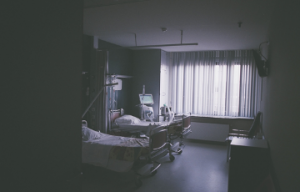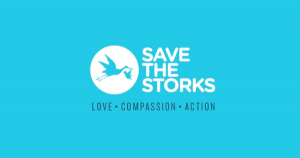Abortion’s Effects on Physical and Mental Health
Abortion’s Effects on Physical and Mental Health
Categories: SAVE THE STORKS
Abortion’s Effects on Physical and Mental Health

Our nation’s top abortion providers often do not provide women with the full range of education when it comes to women’s health after abortion. When abortion providers do not educate women on the physical side-effects of abortion, they are putting the health of those same women at risk.
Below are statistics and studies that show how an abortion can affect a woman’s health and body.
The Often-Untold Link Between Abortion and Risk of Breast Cancer:
For many years, studies have been conducted that show the link between abortion and the risk of breast cancer later in life. Abortion supporters have claimed that the link between abortion and breast cancer is a myth. Many studies have been done to show the relationship (or lack of one) between abortion and elevated risk for breast cancer. While many of these studies do not agree with an association between abortion and breast cancer, it is important to recognize the studies that have found a significant link between the two.
This study, done by three major English databases over 14 provinces in China, shows that induced abortion is “significantly associated with an increased risk of breast cancer among Chinese females, and the risk of breast cancer increases as the number of [abortions] increases.”
The deVeber Institute for Bioethics and Social Research conducted research as well, finding a strong connection between abortion and risk of breast cancer. Below are some of the surprising statistics that the deVeber Institute found in their study:
- Abortion increases a woman’s overall risk of breast cancer by 30 percent.
- Since 1957, 23 of 37 worldwide studies show an increased breast cancer risk with abortion, a risk as high as 310 percent.
- The biological rationale for breast cancer development is related to the woman’s unprotected internal exposure to estrogen when a pregnancy is abruptly terminated early in gestation.
The Often-Underreported Death Rate Relating to Abortion Complications
It is estimated that approximately 70,000 women die every year due to unsafe abortions, botched abortions, or post abortion complications. Some of the deadliest post-abortion complications include hemorrhage, infection, blood clots, ectopic pregnancy, and cardiomyopathy. Many of these deaths often are not reported as abortion related, however. The deVeber Institute notes,
“The American Medical Association (AMA) relies on the Centers for Disease Control (CDC) for its statistics concerning abortion-related deaths and, given that the CDC uses hospital and clinic records (which underreport maternal deaths from abortion) for its data, the AMA does not recognize the full extent of abortion-related deaths.”

Abortion Has Been Linked to Many Mental Health Issues Later On
There is a strong correlation between abortion and mental disorders later in life. Many women suffer after an abortion- for some it may be immediate, but for others, mental and emotional disorders do not arise until years later. Abortion has been linked to mental disorders such as depression, anxiety, post abortion stress syndrome, eating disorders, and suicidal thoughts and actions.
Post-abortion mental health issues often are not reported or focused on as heavily as the physical side-effects of abortion. But for many women, it is the mental and emotional side-effects that affect them the most.
Mental health effects our bodies physically. If a post-abortion woman is struggling mentally, there is a strong possibility that it is also affecting her physical health. The Mental Health Foundation notes that people with high rates of mental distress are more likely to die from cancer later on. They also note that “depression has been found to be associated with an increased risk of coronary heart disease”.
For any woman struggling mentally after an abortion, it is likely that she is also struggling physically.
Abortion providers who focus and advertise so heavily on care need to do more to tell women the true health concerns that can and often do arise after an abortion. Women deserve to make a fully informed choice, especially when her physical and mental health are at stake.

Save the Storks partners with over 60 pregnancy centers nationwide with nearly 60 mobile medical units operating around the country. In 2019, affiliate pregnancy centers reported over 2,100 positive pregnancy tests and over 1,800 choices for life aboard their mobile medical units.
To help find counseling resources near you, visit https://www.aacc.net/
To read stories of women who have found healing after an abortion, click here.
For crisis pregnancy resources near you, click here.
